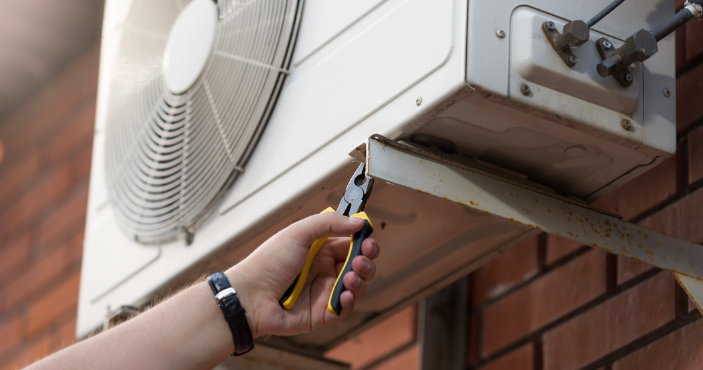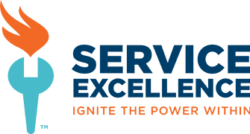Blog
Breaking Down the 4 Most Important Technician Skills
By Todd Liles • Breaking Down the 4 Most Important Technician Skills
Every service technician and sales representative needs to focus on four main skill sets for maximum success. Working in the contracting industries of HVAC, plumbing and electrical requires these skills. Each of these skill sets holds great success for the tech that explores, learns and trains in these areas.
An important aspect to keep in mind when tackling these skills is to break them down — this way achieving them is more feasible, easier to track and less daunting. Here are the four important areas for technician success and the ways that they can be broken down and achieved.

Technical Skills
The most obvious skill that a technician must focus on is technical skills. When a customer calls with a need, they want to know that their technician is capable and trained to discover and fix their problem. When focusing on improving and growing technical skills, it’s important to first know the company’s diagnostic sheet inside and out. It’s also important to remember that a diagnostic is only thorough and complete after a technician has explored the entire system.
Improving technicians’ diagnostic skills requires that techs slow down and take time to discover any and all hazards. Along with growing a technician’s diagnostic skills, it’s important that a tech knows how to effectively compare a customer’s problem to a more relatable topic or compare the issue using an analogy.
By doing this, a technician is proving his technical expertise as well as his ability to make a customer comfortable in technical situations where they may not be familiar with all the parts and their functions.
Customer Service Skills
Skills related to customer service can be both direct and indirect. Direct customer service skills include being friendly, respectful and professional. Proving these direct customer service skills could be parking the service vehicle on the street, being sure to use floor protection before entering the house, greeting the customer with a smile or bringing tools to the initial meeting at the front door, so a customer knows the tech is ready to work.
Indirect service excellence skills are normally skills that require the technician to nonverbally read the customer and the situation. This may include being able to quickly determine the best way to respond to a customer’s personality type, gauge a customer’s interest during the presentation as well as how and when to move forward with the close.
Both types of customer service skills – direct and indirect – require training and regular practice in order for them to be mastered and used consistently.
Verbal Skills
Verbal skills go hand-in-hand with a technician’s customer service skills, but along with having great verbal abilities comes the need for strong nonverbal proficiency. Possessing and practicing positive body language is just as important as knowing the next statement to make during a close. When a tech’s body language and spoken word are coherent and positive it builds rapport and trust with the customer.
Technicians must also have a keen insight into the words that they use during their presentations. Utilizing “power words,” such as investment rather than cost, should be practiced during a presentation. These words reflect a positive connotation in the customer’s mind as well as work to move the sale along.
When a technician combines “power words,” positive body language and good communication skills, it makes the sale call or service call comfortable and productive for both the client and the technician.
Written Skills
Written skills are important throughout the entire process of the call – from the initial office paperwork and the diagnostic sheet to the client’s paperwork and the finalized paperwork filed in the office’s records. Having a standard for paperwork completion is important for the entire company to maintain organization and a clear flow of information and communication.
Written skills are also important when presenting the options during a presentation. They’re especially important when using a computation called the “True Cost Calculation,” which works to compare the cost of repairs versus replacement. When a technician is capable of clearly communicating these options, then the customer is better informed on all alternatives so they can make the best and most educated decision.
Hone Your Skills With Service Excellence
Great technicians learn and train on these four important topics. Mastering these skills is best achieved by breaking down each major skill into manageable components. To learn more about training on any of these topics or skills contact Service Excellence Training today.
We have great materials and resources for all of these vital technician skills. We look forward to helping you increase your company’s sales, leads and retention. Here at Service Excellence Training, we IGNITE THE POWER WITHIN!
What SETs Us Apart?
Proactive Business Plans
A proactive business is a successful business. That's why our team takes the time to make sure every client has a proactive, not reactive, business plan. Our strategies make your business run more smoothly and profitable.
Proven Results
Our training services help businesses identify and achieve their key performance indicators (KPIs). Whether it's increased revenue or higher satisfaction rates, our methods allow you to see immediate and continued results.
Personalized Training
Our team of experts works hard to make sure your business gets personalized training. We'll work with your team one-on-one or in group settings to set and achieve your business goals. We develop training based on your goals!
Prioritizing People
We believe that people are the most valuable asset. We strive to provide outstanding benefits, life balance, leadership, and support to our team. We believe in helping people reach their greatest level of growth, contribution and satisfaction.

Trusted By
Business Ignition
SPARK
Classroom Training
Resources
Company

Join our newsletter











